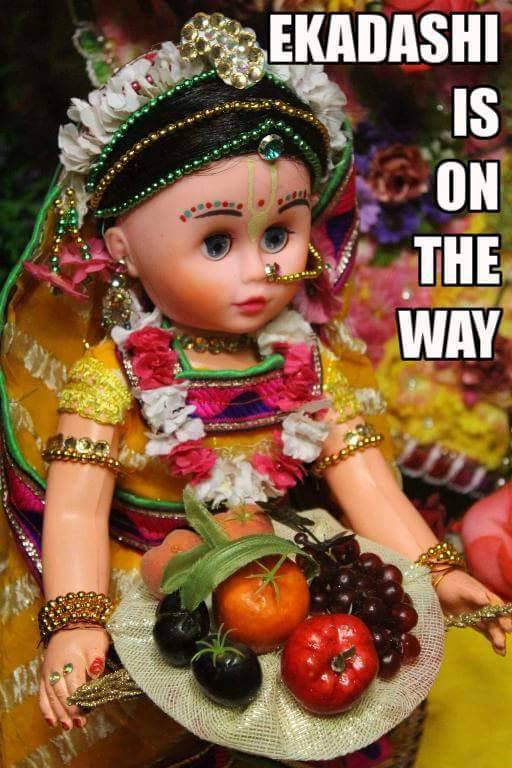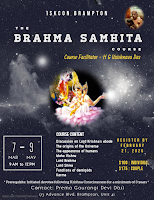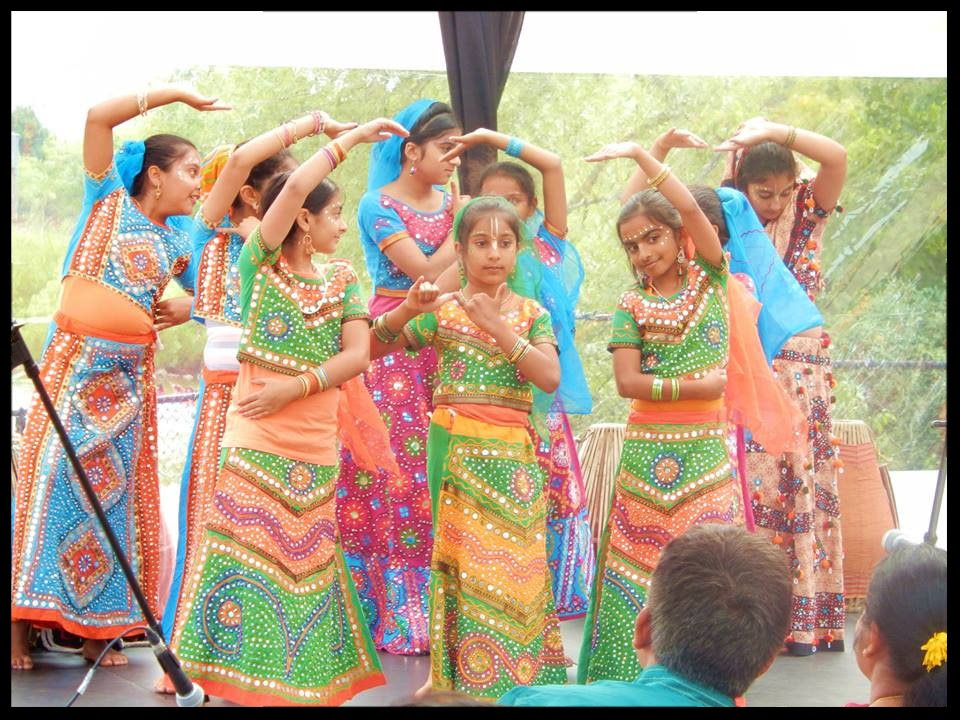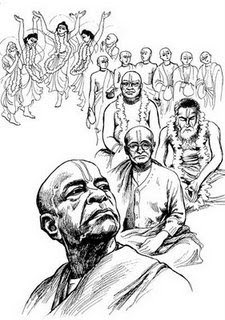From Promila Mataji:
I’ve understood the following points about KY and JnY. However, i am still not clear why Jnana Yoga is considered superior to Karma Yoga in hierarchy (Yoga ladder) when Karma Yoga and Jnana Yoga are actually complementary?
1. Karma Yoga (action in devotion) is superior to Jnana Yoga (renunciation of action due to adaption of knowledge) because KY is easier compared to JnY.
2. In the yoga ladder or hierarchy, JnY is superior and yet in practice KY is superior.
3. Karmas performed without transcendental knowledge are materialistic in nature. So it’s transcendental knowledge that imparts the spiritual qualities to Karmas.
4. Without the application of knowledge (TK, not dry philosophical knowledge), knowledge makes one Mithyacharana, as Krishna warns Arjuna.
Considering these points, it seems more appropriate to call them complementary yogas rather than one being superior in hierarchy and the other though superior in hierarchy, is inferior in practice.
Answer Podcast:
Download by “right-click and save content”
Transcriber: Sharan Shetty
Edited by: Keshavgopal Das
Transcription :
Question: Are jnana and karma complementary instead of hierarchical?
Answer: Karma and jnana can broadly refer to action and intellectual analysis whereas karma yoga and jnana yoga are specific processes. Beyond these two, there is the path of bhakti yoga.
Karma yoga and jnana yoga, as yoga sadhanas, are not complimentary. They are mutually exclusive, and it is not that karma yogi’s practice is incomplete without jnana yoga or vice versa. Both are two distinct processes of yoga and if a person is practicing karma yoga then he cannot be practicing jnana yoga which requires renunciation of action. Their essential methodologies involve opposite courses of action because karma yoga involves action and jnana yoga involves inaction.
With respect to their intention, in the Fifth Chapter, Lord Krishna talks about their common goal. The analysis of Third and Fifth Chapter is same but in the Fifth Chapter, Krishna goes deeper into certain subjects. In Bhagavad-gita 5.4 and 5.5, Krishna says,
sankhya-yogau prthag balah pravadanti na panditah
ekam apy asthitah samyag ubhayor vindate phalam
“Only the ignorant speak of devotional service [karma-yoga] as being different from the analytical study of the material world [sankhya]. Those who are actually learned say that he who applies himself well to one of these paths achieves the results of both.”
yat sankhyaih prapyate sthanam tad yogair api gamyate
ekam sankhyam ca yogam ca yaḥ pasyati sa pasyati
“One who knows that the position reached by means of analytical study can also be attained by devotional service, and who therefore sees analytical study and devotional service to be on the same level, sees things as they are.”
Therefore, it is clear from the above two verses that those who think that the paths of sankhya and yoga are two different paths have a childish mentality and Krishna further states that actually if one who attains perfection in one process then one attains the destination that is intended from both the processes. Ultimately, both are meant to take us towards transcendence which is explained by Lord Krishna in Gita 5.2, sannyasaḥ karma-yogas ca niḥsreyasa-karav ubhau (The Personality of Godhead replied – The renunciation of work and work in devotion are both good for liberation).
The important point to recognise here is that when Krishna is saying both paths lead to the same ultimate destination; he is not combining the two processes. He is not saying that one is dependent on the other. Ultimately, in terms of their own sadhanas, both lead to transcendence.
The process of bhakti yoga integrates and synergises the strengths of both these processes by leaving out their weaknesses. What bhakti yoga does is, it adopts activity as a means to offer service, thus allowing to use our natural ability to act but in a detached way. Bhakti yoga accommodates activity which is a natural element of karma yoga. The advantage of jnana yoga is that it is not entangling because due to absence of fruitive activities, the practitioner does not get entangled. Bhakti yoga incorporates the contemplative and non-reactive aspect of jnana by its process of internal remembrance of Krishna. That means, within bhakti, the aspects of karma yoga and jnana yoga are subordinated and harmonised in a complimentary sense. Srila Prabhupada’s use of the word “devotional service” as the translation for bhakti indicates this particular point.
The process of karma and jnana are themselves not to be given up. It is stated in Bhakti Rasamrta Sindhu 01.01.11, anyabhilaṣita-sunyam jnana-karmady-anavṛtam (One should render transcendental loving service to the Supreme Lord Krishna favourably and without desire for material profit or gain through fruitive activities or philosophical speculation).
In the definition of bhakti, it is stated, jnana and karma are uncovered. This covering is of selfish desires. When the covering is removed, then jnana and karma become purified and harmonised towards the service of Krishna, in the process of bhakti.
To get a simplistic yet broad understanding of these three, consider our hands, our head and our heart where karma yoga co-relates with the hands, jnana yoga with the head and bhakti yoga with the heart. But bhakti does not co-relate only with the heart because the heart directs the head and the hands.
Similarly, bhakti incorporates and integrates everything. We have an intellectual rational side and we also have a practical action-oriented side. We would be incomplete without either. That is why, within our bhakti, if we just contemplate, it would be very difficult for us to sustain. Similarly, if we just run around doing things without thinking about the goal, Krishna, then that would reduce our bhakti to just karma. The synthesis of action and contemplation which is done in bhakti brings about the complementarity of karma and jnana.
End of transcription.
The post Are jnana and karma complementary instead of hierarchical? appeared first on The Spiritual Scientist.




 By Paramadayala Nityananda Dasa
By Paramadayala Nityananda Dasa
 By Gauranga Darshan Das
By Gauranga Darshan Das










 By Rama-mohana Dasa
By Rama-mohana Dasa


 By Caitanya Chandra dasa
By Caitanya Chandra dasa




 Adult Education At The Temple
Adult Education At The Temple














